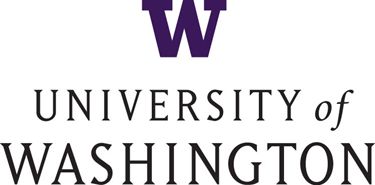Designated critical infrastructure by President Trump in an executive order and encouraged to reopen or remain in operation, meat processing plants face challenges in keeping workers safe during the pandemic.
University of Washington School of Public Health assistant professor Marissa Baker, an expert in the Department of Environmental and Occupational Health Sciences on worker safety related to infectious diseases, provided these comments on what the industry can do to protect workers.
“It is possible to keep workers safe in meat processing plants during this pandemic, but some major changes will need to be made to the work environment, and no single change is going to be adequate,” said Baker.
Additional quotes from Baker:
First, slow production:
“Most efforts to control the virus won't be effective as long as the pace of work is kept as fast as it is. Workers tend to be crammed into these facilities, working hard to keep up with the quotas. This also means workers are breathing heavily as they try to keep up, and possibly are less likely to take breaks to practice hand hygiene due to time pressures.
“Slowing the pace of work would allow workers to have more space between them, promoting physical distancing, and allow workers to take frequent breaks to wash hands, change personal protective equipment, and safely move about the facility. Of course, this could result in a smaller workforce being in the facility at any time. This would then require the workplaces to still continue to pay all workers, even if they aren't working every day, and be accommodating to the need for flexible working during these times.”
Empower workers to take paid sick leave:
“I think some of the most important controls to implement are policies and practices which are supportive of worker health. We hear a lot about paid sick leave, and just as important as giving workers access to paid sick leave is empowering workers to take it, without fear of retaliation or retribution once the worker returns to work.
“If a worker is worried they will be laid off for taking sick leave, then they won't take it — even if they or a family member are sick and they really should be taking it. This can lead to presenteeism, which is when workers show up to work sick.
“If workers are showing up to work sick, this isn't a problem with the worker, this is a problem with the workplace. Either adequate sick leave isn't available, workers aren't empowered to take it, or there are perceptions there will be retribution if the worker takes sick leave.”
For businesses:
“If you have workers showing up to work sick, then regardless of where the illness originated, this is very much a workplace problem and the culture and policies need to be fixed, or illness will continue to be a problem in your workplace.”
Worker rights and power in the workplace:
“In meat processing plants, as in most workplaces, there is a power imbalance that needs to be acknowledged and fixed. These workers are especially vulnerable for a number of reasons, including having fairly low pay, often being immigrant or refugee workers, and perhaps speaking English as a second language. These vulnerable workers are less likely to assert their rights to a healthy and safe workplace, and are more likely to accept unsafe workplaces in order to maintain employment.”
